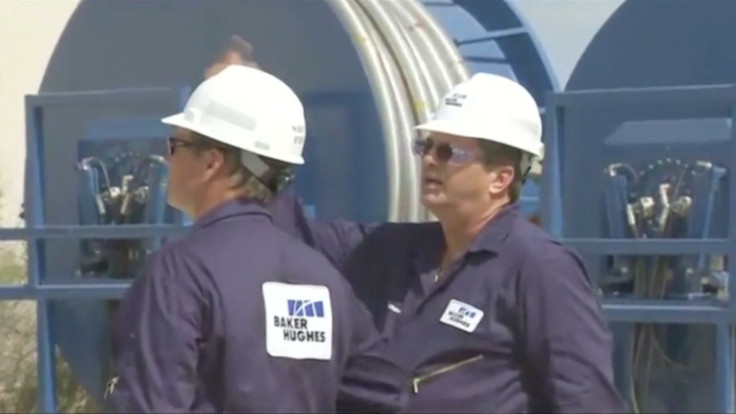General Electric Plans To Divest Entire Stake In Baker Hughes In Three Years

KEY POINTS
- GE will use the proceeds from the divestment to pay down its total consolidated debt of $81.9 billion
- GE’s share holding in Baker Hughes is valued at $5.5 billion
- Baker Hughes posted a loss of 31 cents per share on 21% lower revenues
Along with its second quarter earnings results, General Electric (GE) announced on Wednesday it will divest its entire 37% stake in oilfield service company Baker Hughes (BHI) within three years.
GE said it will use the proceeds from the divestment to pay down its total consolidated debt of some $81.9 billion.
GE characterized Baker Hughes as “a substantial noncore asset.”
Forbes reported that, at current prices, GE’s 377-million share holding in Baker Hughes is valued at $5.5 billion – reflecting a 40% drop in share price so far this year.
In the second quarter, as demand for oil services were hurt by the pandemic, Baker Hughes posted a loss of 31 cents per share on 21% lower revenues.
Forbes noted that in 2017 GE merged its oil and gas services business into Baker Hughes – at a cost of $7.4 billion -- hoping the company would rival oilfield giants Schlumberger (SLB) and Halliburton (HAL).
However, since that initial deal, debt-burdened GE has sold off various portions in Baker Hughes, including a $4 billion stake in 2018 at a loss of $2.2 billion. Another sale in 2019 led to a huge $7 billion accounting charge for GE.
“While the [divestment] announcement provides a long-awaited resolution to the GE overhang, it could be a disappointment to many [Baker Hughes] investors hoping for a more rapid unwind,” said Marc Bianchi, an analyst at Cowen & Co.
Bianchi further noted with about 750 trading days over the next three years, GE will on average be unloading about a half-million Baker Hughes shares per day. This constant selling will likely weigh on Baker Hughes shares.
As of noon EDT, Baker Hughes shares were down 2.14%.
In its own second quarter earnings release last week, Baker Hughes CEO Lorenzo Simonelli said the quarter was “challenging” as the company “navigated through the ongoing impacts of the COVID-19 pandemic and the sharp decline in activity levels due to lower oil and gas prices.” ‘
Simonelli added: “The risk of a second wave of virus cases, the reinstitution of select lockdowns, and the risk of lingering high unemployment creates an uncertain economic environment that likely persists through the rest of 2020. Given these factors, we are preparing for potential future volatility, while also focusing on structurally reducing our cost base and implementing a number of strategic initiatives across all of our product companies.”
© Copyright IBTimes 2025. All rights reserved.





















